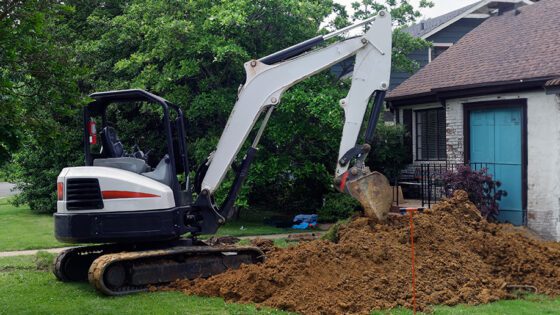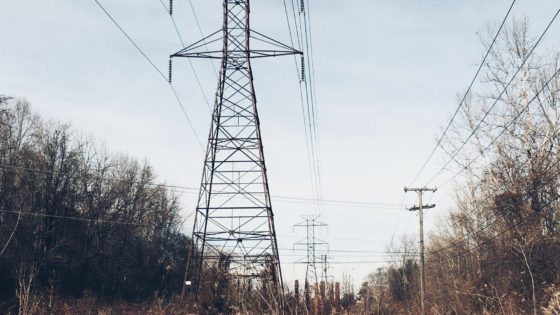When it comes to hiring an attorney for a land condemnation, some may shy away at first because they think it might cost too much money. At the NC Eminent Domain Law Firm, we believe nothing could be further from the truth. We’ve often seen the opposite to be true.
As you read through the following steps, ask yourself, “Would I rather have an experienced attorney complete these items for me?”
If the answer is yes, don’t wait. We believe you reduce the risk of making a serious mistake by hiring an attorney early on a contingency basis. Since we’ve been in business, we’ve increased the average offer for our clients by 197%.1
Steps to take to attempt settling your eminent domain case before condemnation
Land condemnation is when the North Carolina Department of Transportation (NCDOT) files a lawsuit against you and legally assumes ownership of all, or a portion of, your property. Prior to this stage of the eminent domain process, there are many steps to take if you want to contest the NCDOT’s claim or compensation offer.
If you think that it might be easier to deal with the NCDOT on your own, here’s a checklist that might be helpful to you as you spend what could be the next several months (and sometimes years) fighting with the NCDOT for a fair offer for your property.
Steps to take involving appraisers and experts
- Determine whether a second opinion in the form of an independent appraisal is necessary or helpful to your case.
- Determine whether a local appraiser has the qualifications to perform an appraisal for an eminent domain case, and whether that appraiser would do well in front of a jury, if needed.
- Hire appropriate experts, such as land use planners, engineers, environmentalists, or other experts who could strengthen your highest and best use argument.
- Ensure your experts and appraiser are sharing information and that their opinions do not contradict each other.
Steps to take involving the condemning agency
- Contact the condemning agency to obtain a copy of the plans as they relate to your property – and possibly nearby properties.
- Document every contact with the condemning agency, including names, dates, times, what was said, etc.
- Work with the condemning agency to schedule an inspection and appraisal of your property (without revealing any information about your property that could be potentially harmful to your case).
- Review the condemning agency’s appraisal (often 50-100 pages) for potential inconsistencies and errors.
Other necessary steps to take
- Determine your property’s highest and best use (i.e. the use that would result in the highest sales price).
- Determine whether the project plans will, or could, harm your use of the property.
- Review any settlement documents to ensure you are not inadvertently selling more than what the condemning agency is claiming. (Permanent easements, in particular, can generally be more onerous than they may appear.)
Steps to take if your case is not settled before condemnation
If your case doesn’t settle before condemnation (when the NCDOT files a lawsuit against you and legally assumes ownership of your property), you may also need to:
- File an answer to the condemnation lawsuit within the statutory period for responding, or face being legally capped at the agency’s original offer.
- Research any outstanding liens, mortgages, or other financial encumbrances that may need to be paid out of the deposit or final settlement.
- Negotiate with any lien or mortgage holders so that the deposited funds can be disbursed.
- File a motion requesting that the court disburse the condemning agency’s deposit.
- Conduct a “discovery” to request plans, potentially hidden appraisals, and cross-sections.
- Send interrogatories to the condemning agency to obtain official answers to any questions as to how the project will affect the property.
- Select a mediator for the court-appointed mediation, and schedule a date for mediation.
- Prepare any exhibits that may be needed for trial.
- Research case law to try to ensure that all the damages to your property are ones the law allows you to be paid for. Note: North Carolina law is not written in favor of property owners, and there are many ways a property may be damaged that the condemning agency is not required to pay for.
- Select a jury, trying to avoid potential jurors that could torpedo your arguments.
True story illustrating why “doing it yourself” can cost you (Big time!)
We settled a case that illustrates the problems people can face when they first try to negotiate claims on their own without the benefit of an experienced eminent domain lawyer.
Our client* did not realize that negotiating with the NCDOT is very different than negotiating with a private property owner, and he went forward with his own research to try to prove his property was worth more than the NCDOT claimed.
Unfortunately, the research he uncovered showed the opposite – his land was worth less!
He contacted us to see if we could help. Although the damage had already been done, we capitalized on our firsthand knowledge of the reputation of the NCDOT appraiser involved and other valuations of properties on the same project. Fortunately, we were able to get our client more than 50% more for his property.**
However, the client could have possibly walked away with more than double the DOT’s offer!
We had evidence and appraisers who we think would have easily supported that fact. But the client, through his own attempts to demonstrate his property value before we got involved, actually damaged his case with his research. It was a hard lesson for him to learn. If he had contacted us in the beginning, he could have potentially walked away with 150% more.
Two reasons why we don’t recommend facing the NCDOT alone
1. It’s not as easy as you think.
Negotiating with the government in eminent domain issues is not nearly as straightforward as dealing with private buyers. It’s much more complicated, with hundreds of nuances in the law – nuances that even some lawyers can have trouble understanding.
Four of our attorneys, Stan Abrams, Jason Campbell, Kevin Mahoney, and Ken Sack used to negotiate as lawyers on behalf of the NCDOT. As former NCDOT “insiders,” they saw firsthand what property owners were up against: well-trained legal teams steeped in eminent domain law and processes. These teams work with their “regulars” – appraisers, negotiators, other lawyers, title clerks, and others – to get fairly predictable results.
Stan, Jason, Kevin, and Ken left the NCDOT because they saw too many property owners leaving good money on the table when trying to handle their cases alone, or because they didn’t hire an experienced eminent domain attorney. They joined our firm to help property owners protect their rights.
By law, the NCDOT is required to give you what it can prove is a fair offer for your property. However, fair can be, and often is, in the eye of the beholder – the beholder who offers the most compelling proof.
And frankly, experience negotiating on both sides has taught us that the NCDOT may be more likely to give higher initial offers if they know you have an experienced eminent domain lawyer on your side.
2. Negotiating with the NCDOT can potentially cost you more in possible settlement monies left on the table.
Our firm works on contingency, which means our clients don’t pay us a dime unless we recover money for them over and above their initial offer from the government. That contingency fee is based on the difference between the government’s initial offer and a higher offer we may be able to get for you.
For example, if the government offers you $200,000 for your property, and we can prove it’s worth $300,000, our attorney’s fee is a percentage of that $100,000 difference – not the entire $300,000.
100+ years of combined eminent domain experience on your side
Our attorneys have more than 100 years of combined eminent domain experience and have tried many different kinds of cases throughout the state. We’ve handled cases involving complex multi-million dollar highways, as well as minor sidewalk easements. Each project and each area of the state comes with its own unique set of circumstances – and potential problems.
Over the years, our attorneys have built relationships with experts throughout the state, from nearly every type of related field.
Get a FREE case evaluation from our NC eminent domain lawyers
Taking on the NCDOT alone can be quite an undertaking. If you decide not to do this on your own and would rather have an experienced NCDOT “insider” on your side, contact our office, or call us at 1-877-393-4990 for a free case evaluation.
* Client identity has been removed or changed to protect privacy.
** Cases or matters referenced do not represent the law firm’s entire record. Each case is unique and must be evaluated on its own merits. The outcome of a particular case cannot be predicated upon a lawyer’s or a law firm’s past results.



